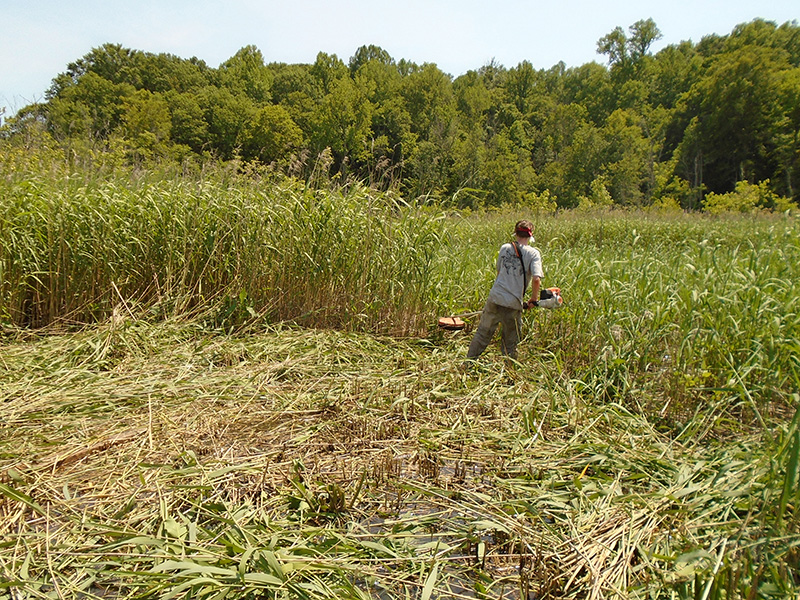
Credit: Eric Buehl, University of Maryland Sea Grant Extension.
Environmental managers can now reference a new NCCOS-funded study to better determine the resources needed to eradicate invasive Phragmites australis from a variety of landscapes in Chesapeake Bay.
The Eurasian lineage of Phragmites australis, also known as the common reed, is one of the most aggressive wetland invaders in North America. It can quickly outcompete native vegetation, forming dense, impenetrable thickets up to 20 feet tall. Such monocultures decrease overall wetland health by reducing biodiversity and changing hydrology and nutrient cycles when compared to mixed vegetation wetlands.
The researchers conducted a five-year experiment across eight sub-estuaries of Chesapeake Bay to evaluate invasive and native plant response to herbicide treatment. Sites chosen for the study represented a range of watersheds with different land-use types and anthropogenic impacts.
Restoration sites surrounded by intact, high-quality wetlands showed success in a shorter period than those within landscapes already impacted by development and agriculture. Study results will inform what is possible for Phragmites removal, allowing invasive plant managers to set pragmatic goals and communicate more realistic expectations for restoration based on a site’s current condition.
